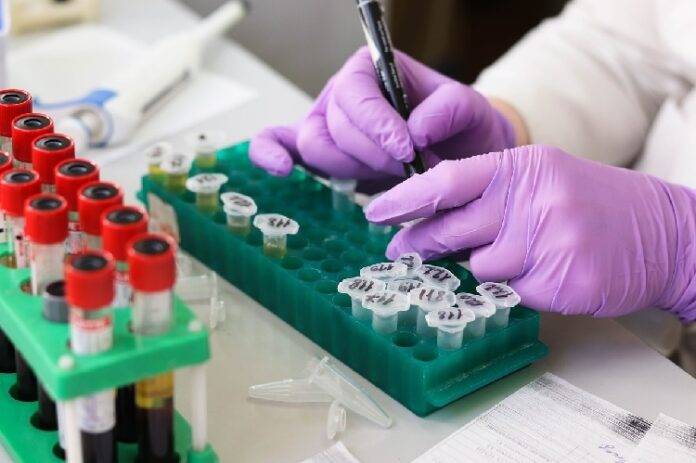Clinical research is how new drugs and treatments are validated, tested, and improved. It’s a long and detailed process that involves testing drugs on human subjects (also known as clinical trial participants or human volunteers) to check for safety, efficacy, and potential adverse reactions.
A Clinical Research Organization (CRO) is an independent company that supports clinical trials for new drugs, diagnostics, devices, and applications. A CRO has a team of professionals who provide services such as regulatory consulting, statistical analysis, and drug manufacturing to support clinical trials.
The scope of work carried out by a CRO can vary widely, but they all serve the same primary function – to assist pharmaceutical companies with the details of testing new drugs on humans. This blog post will look at a CRO’s five essential roles in the clinical research process. So, let’s get started!
1. Reviewing safety data from human trials
One of the essential roles of a clinical research organization is to review safety data from human trials. Clinical research volunteers are closely monitored during clinical trials, and any expected and unexpected adverse effects are documented. Their client can resolve any queries related to clinical research through their customer care centers. Although they have fine customer service centers, they need contact center digital transformation to keep up with the latest trends in the market.
After all, trials are completed, this data is reviewed, and an event report is written. This report summarizes all adverse effects observed during the clinical trial and whatever action was taken to address them.
This report is critical to the regulatory approval process because it provides information to assess the risk of a new drug and make sure it’s safe to use in general populations.
The CRO is also responsible for reviewing and evaluating any data collected from the consent process so that they can be sure the data being collected is accurate and the entire process is being conducted properly.
This will involve reviewing the informed consent materials (the information given to subjects about the trial) and the consent process to ensure it is done according to regulatory and ethical standards.
2. Managing the drug manufacturing process
Another vital role that a CRO can play in drug development is managing the drug manufacturing process. This includes making sure the process followed by the pharmaceutical company is regulatory compliant, adheres to cGMP (current good manufacturing process) standards, and is cost-effective and efficient.
The CRO will also review and approve design documents, including equipment layouts, facility drawings, piping, and instrumentation diagrams. They will work with the pharmaceutical company during the design and manufacturing phases to ensure that the process is proceeding as expected.
Clinical trials must use the same drug formulation as in real-world settings, so testing can’t be done with a different version. Therefore, clinical research organizations ensure the drugs are manufactured in a controlled environment similar to what is expected in the real world.
If there are any issues, they will work with the company to identify and address the cause of the problem.
3. Supply and management of clinical research volunteers
When clinical trials are being planned, clinical research organizations help pharmaceutical companies recruit volunteers to participate in the trial by supplying qualified volunteers. A CRO will also manage the volunteers throughout the trial.
Clinical research organizations have systems to screen volunteers, assign them to specific trials and follow their progress throughout the trial. This dramatically reduces the time and effort required by pharmaceutical companies to recruit and manage volunteers.
4. Data management and statistical analysis
One of the most straightforward roles a CRO can play is data management and statistical analysis. This means the CRO will be responsible for organizing and cleaning collected data and conducting fundamental statistical analyzes of the data to ensure it is clean, accurate, and usable.
This will include creating spreadsheets to track data, designing and conducting analytical studies, developing and managing data collections, managing surveys and focus groups, performing complex statistical modeling, cleaning messy data sets, and using statistical modeling to ensure the data accurately reflects reality.
This might also include running sample size calculations to ensure that future data collection efforts are powered appropriately. The CRO will design and conduct analytical studies to help the pharmaceutical company determine the safety profile of a new drug, the efficacy of a new drug, and the correct dosing schedule for a new drug.
CROs are also responsible for managing the data’s integrity throughout the study’s duration. This can include ensuring the data is adequately monitored for bias, managing timelines for data transfer, and ensuring the data is appropriately backed up and stored.
5. Quality assurance and process review
Another critical role of a CRO is to review quality assurance and processes. Clinical trials are long and complex processes. Pharmaceutical companies can’t oversee every single detail of every trial so a CRO can provide this oversight.
They are independent companies with no financial or professional interest in any trial outcome. This makes them the ideal people to ensure that clinical trials are being conducted in a way that produces accurate results.
This includes reviewing a company’s policies and procedures to ensure they are followed to the letter and reviewing the quality management system to ensure compliance with regulatory standards.
The CRO will be responsible for identifying ways to improve the pharmaceutical company’s QA/QC processes and make the company more consistent in terms of its production practices. They will review the procedures employees follow daily and their training procedures to ensure they are consistent and up-to-date.
Conclusion
Clinical research organizations have a critical role to play in the clinical research process. They provide pharmaceutical companies with a wide range of services throughout the clinical trial process, making it easier and more efficient for pharmaceutical companies to test their drugs. Depending on your needs, a CRO can take on any of these roles or any combination. Each company will have unique strengths and weaknesses, so it’s important to research multiple options before making a final decision.
























